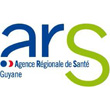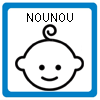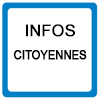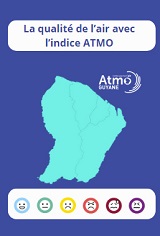Blada.com
mercredi 07 janvier
Boîtes aux lettres
Courrier des lecteurs
Petites annonces
Emploi / Formation
Covoiturage
Infos citoyennes
Infos citoyennes
25/06/21
Les étudiants infirmiers se retrouvent en première ligne
 Pour aider les hôpitaux à faire face à cette très longue troisième vague, les 140 étudiants de deuxième et troisième années de l’Institut de formation en soins infirmiers sont mobilisés dans les établissements. Avec un double challenge : aider à la prise en charge des patients en situation de crise et, pour les troisième année, réussir leur examen ces jours-ci.
Pour aider les hôpitaux à faire face à cette très longue troisième vague, les 140 étudiants de deuxième et troisième années de l’Institut de formation en soins infirmiers sont mobilisés dans les établissements. Avec un double challenge : aider à la prise en charge des patients en situation de crise et, pour les troisième année, réussir leur examen ces jours-ci.
Ce jeudi 15 avril, Sindia s’en souvient très bien. L’étudiante infirmière de troisième année a démarré son stage de fin d’études (15 semaines) en hospitalisation à domicile (HAD), à Cayenne. Elle reçoit un appel « pour me dire que je suis attendue à Saint-Laurent le lundi ». Cela fait six semaines que les hospitalisations de patients Covid sont en hausse, en Guyane. Les hôpitaux de Cayenne (CHC) et Saint-Laurent du Maroni (Chog) ont déclenché leurs plans blancs, les vacances des soignants ont été annulées, les heures supplémentaires se sont multipliées, les personnels des opérations non urgentes ont été redéployés, de premiers renforts sont arrivés. L’Institut de formation en soins infirmiers a accepté que les hôpitaux sollicitent les étudiants de deuxième année, qui n’ont pas d’examen à passer. Mais les patients continuent d’affluer.
 Des redéploiements massifs
Des redéploiements massifs
Les étudiants de troisième année, qui valident leur diplôme ces jours-ci, sont redéployés à leur tour. Sindia rejoint le service de réanimation du Centre Hospitalier de l’Ouest Guyanais (Chog). Sa collègue Sophie interrompt son stage à la protection maternelle et infantile (PMI) pour la rejoindre. Tout comme Gwladys, qui était, elle, en pédiatrie au CHC. « Notre avis, il n’a pas été pris en compte, se souvient Sindia. On arrive en réa, qui n’est pas un service lambda. Il fallait apprendre. Les professionnels ne pouvaient pas nous laisser seules à la place d’un infirmier. » Très vite, elles sont réaffectées en service de médecine. « Là, on pouvait davantage aider. On pouvait prendre en charge des secteurs. Mais tout ça a été très bénéfique en termes de connaissances. Le Dr Ibrahim Lehida (médecin chef du service de réanimation) nous a appris des choses en soins critiques. »
Une ambiance qui se modifie
Les étudiantes qui n’ont pas changé de terrain de stage voient l’ambiance se modifier, à mesure que la vague monte. Aliane se trouve à l’unité des maladies infectieuses et tropicales (Umit) de l’hôpital de Cayenne. « Mi-avril, l’unité a été divisée en deux. L’unité non Covid est descendue à l’étage inférieur. » Là, elle ne voit pas de patients atteints de Covid-19 mais travaille, certains jours, avec des infirmières venant de l’unité Covid. « Elles me disaient que c’était compliqué, qu’il manquait de personnel » car des soignants tombent malades. Les professionnels s’appuient sur les étudiants de troisième année. Morgane, qui se trouve aux urgences, voit « une augmentation des cas à partir de mai, une croissance des hospitalisations ». Elle constate la fatigue des soignants. « J’ai fait deux semaines en réanimation, en secteur Covid. En parlant avec les professionnels, on sentait qu’ils étaient à bout, malgré l’arrivée des militaires. »
L’émotion des premiers décès
Priscilla se retrouve en secteur Covid à l’hôpital de Cayenne. Elle assiste à son premier décès. « Une patiente Covid qui ne pouvait pas être réanimée car elle avait énormément de comorbidités. On lui prodiguait les soins primordiaux. On s’y attendait. Il fallait annoncer à la famille que ce serait le dernier jour où elle la verrait. Ce n’était pas facile. C’était beaucoup d’émotions. Je n’avais jamais vécu ça. Ce n’était pas évident, mais très formateur. »
Et du travail personnel le soir
« Très formateur. » Les mots reviennent en boucle chez les étudiantes. A Saint-Laurent du Maroni, l’équipe de futures infirmières a pris ses marques. Le Chog les loge à l’hôtel, leur fournit quelques tickets restaurant. L’Ifsi négocie que l’établissement leur paie un aller-retour à Cayenne tous les quinze jours. Quatre au départ, les étudiantes voient d’autres de leurs camarades arriver à leur tour. Certains n’ont pas leurs ordinateurs ni leurs livres. Or, tout en s’occupant des patients à l’hôpital, le soir, il faut travailler le mémoire qui est à rendre pour la mi-juin. « On se retrouvait, on s’entraidait », raconte Sophie. Faute de bibliothèque universitaire sur place, le personnel de… la bibliothèque municipale se plie en quatre pour trouver des ouvrages qui pourraient les aider. « C’était beaucoup de fatigue, entre les heures de travail, les heures de recherche et la rédaction. De la fatigue physique et émotionnelle», poursuit Sophie.
Évoluer dans ses choix professionnels
Ce stage en temps de Covid-19 les aura marquées. Certaines, comme Glwadys, déplacée de la pédiatrie de Cayenne vers la réanimation du Chog, puis les urgences pédiatriques, puis la chirurgie, ont été confortées dans leur choix initial. « J’ai fait les urgences. Je n’ai pas aimé ne pas pouvoir suivre l’évolution de mes patients. On se demande si ce qu’on a fait était vraiment utile. Je préfère la pédiatrie. » Hier, elle a annoncé à ses camarades son admission en école de puériculture. Glory, au contraire, qui avait démarré son stage en HAD, a revu ses projets professionnels : « Pendant mes trois années d’études, j’ai tout fait pour éviter les urgences. Pour moi, tout allait trop vite. Là, je m’y suis retrouvée et, finalement, je veux bien y aller. En fait, il suffit de savoir comment ça fonctionne pour s’y adapter. »
Être diplômé infirmier en période « covid »
L’adaptation, c’est ce que retient Blandine Solignat, coordinatrice de l’enseignement théorique à l’Ifsi. « L’ensemble des étudiantes a répondu à la mobilisation. Elles ont fait preuve de beaucoup d’adaptation. C’est une grande qualité qu’on attend d’une infirmière. » Le 13 juillet, elles se présenteront au jury final. Assis face à une dizaine d’étudiantes dans les locaux de l’Ifsi, sur le campus Saint-Denis à Cayenne, le directeur Eddy Constantin rassure celles à qui l’on parle déjà de « diplôme Covid » dévalorisé. « Le diplôme Covid, il est peut-être meilleur que les autres années, parce que vous avez constaté ce que c’est que d’être mobilisables, qu’il faut se serrer les coudes quand on manque de monde, qu’il y a des émotions quand il faut annoncer un décès aux familles. Vous vous êtes mobilisées. Tout le monde est fatigué mais vous êtes là. Vous étiez au cœur des services mobilisés contre le Covid. »
Eddy Constantin, directeur de l’Ifsi : « On voulait que nos étudiants restent des apprenants »
Cette épidémie de Covid-19 représente un challenge, pour l’Institut de formation en soins infirmiers (Ifsi), comme l’explique son directeur, Eddy Constantin. Il faut à la fois répondre au besoin de prise en charge des patients, en envoyant les étudiants en renfort dans les hôpitaux, et permettre à ces derniers de mener à bien leurs études et, pour les troisièmes années, de décrocher leur diplôme. C’est pourquoi l’Ifsi est associé aux cellules de crise, aux discussions avec l’Agence régionale de santé (ARS). Dans la perspective de cette troisième vague, la décision a été prise d’avancer de trois semaines le stage des étudiantes infirmières.
« On sentait arriver cette troisième vague, se souvient Eddy Constantin. On a avancé les stages pour être sûrs d’avoir les troisième année totalement mobilisables. Ils ont dû changer de terrain de stage. On a conscience que ce n’était pas très agréable. Mais on ne peut pas vouloir être infirmier et ne pas se mobiliser quand il y a une pandémie mondiale. » L’enjeu est alors de rappeler aux établissements que ce sont des étudiants.
Donner du sens et du soutien au renfort étudiant
« On voulait qu’ils restent des apprenants, qu’ils soient protégés et pas qu’ils soient considérés comme des petites mains. On sait que ça n’a pas été réussi sur tous les terrains. Avec le Chog, on a demandé qu’ils soient formés aux soins critiques et on a rappelé qu’il ne fallait pas s’imaginer qu’ils allaient faire le travail d’un infirmier. La relation avec le Chog a été intéressante. On a essayé de donner du sens à cet épisode, de les accompagner. Quand elle a appris les conditions dans lesquelles les étudiantes étaient accueillies à Saint-Laurent, la Fédération nationale des étudiants en soins infirmiers a halluciné. A ma connaissance, aucun territoire de Métropole n’a offert un tel accueil. Là-bas, il n’y a pas assez de terrains de stage alors les étudiants doivent partir à 60, 80 km de chez eux et se débrouiller. Cette crise va obliger à travailler des sujets que l’on connaît depuis des années, comme l’accueil des étudiants infirmiers et des internes. Cette crise permet de se rendre compte qu’on a besoin des étudiants. Le Covid-19 a aussi rappelé ce qu’est un infirmier de réanimation, qu’il faut du temps – on estime un an – avant de maîtriser les soins spécifiques. »
Cet article est issu de la Lettre pro de l’Agence régionale de santé. Vous pouvez vous y abonner en remplissant le formulaire suivant : https://forms.sbc28.com/5a8bed50b85b5350ef1cd117/t13M7zUZQi2XMq5E3DdnhQ/0WQoeDwjRXqJblCpKbLDzA/form.html
To help hospitals cope with this very long third wave, the 140 second and third year students of the Nursing Training Institute are mobilized in the establishments. With a double challenge: to help take care of patients in crisis and, for the third year, to pass their exam these days.
This Thursday April 15, Sindia remembers it very well. The third-year nursing student started her end of studies internship (15 weeks) in hospitalization at home (HAD), in Cayenne. She receives a call "to tell me that I am expected in Saint-Laurent on Monday". Hospitalizations of Covid patients have been on the rise for six weeks in French Guiana. Cayenne (CHC) and Saint-Laurent du Maroni (Chog) hospitals have launched their white plans, caregivers' vacations have been canceled, overtime has multiplied, non-emergency operations personnel have been redeployed, initial reinforcements arrived. The Nursing Education Institute has accepted hospitals to call on sophomores, who don't have to take an exam. But patients keep coming.
Massive redeployments
Third-year students, who are validating their diploma these days, are in turn redeployed. Sindia joins the intensive care unit of the West Guyanese Hospital Center (Chog). Her colleague Sophie interrupts her internship in maternal and child protection (PMI) to join her. Just like Gwladys, who was in pediatrics at the CHC. "Our opinion, it was not taken into account," Sindia recalls. We arrive in real time, which is not an ordinary service. You had to learn. The professionals couldn't leave us alone in the place of a nurse. Very quickly, they were reassigned to the medical service. “There, we could help more. We could take over sectors. But it was all very beneficial in terms of knowledge. Dr Ibrahim Lehida (head doctor of the intensive care unit) taught us things in critical care. "
A changing atmosphere
Students who have not changed internship locations see the mood change as the wave rises. Aliane is in the Infectious and Tropical Diseases (Umit) Unit at Cayenne Hospital. “In mid-April, the unit was split in two. The non-Covid unit went downstairs." There, she does not see any patients with Covid-19 but works, on certain days, with nurses from the Covid unit. "They told me it was complicated, that it was understaffed" because caregivers fell ill. Professionals rely on third year students. Morgane, who is in the emergency room, sees "an increase in cases from May, a growth in hospitalizations". She notes the fatigue of the caregivers. "I did two weeks in intensive care, in the Covid sector. Speaking with the professionals, we felt they were at their wit's end, despite the arrival of the military. "
The emotion of the first deaths
Priscilla ends up in the Covid sector at Cayenne Hospital. She is present at his first death. “A Covid patient who could not be resuscitated because she had a lot of comorbidities. He was given primary care. We expected that. She had to tell the family that this would be the last day she would see her. It was not easy. It was a lot of emotion. I had never experienced this. It was not easy, but very educational. "
And personal work in the evening
“Very educational. The words keep coming back to the students. In Saint-Laurent du Maroni, the team of future nurses has made its mark. The Chog accommodates them at the hotel, provides them with a few meal tickets. Ifsi negotiates that the establishment pay them a return trip to Cayenne every two weeks. Four at the start, the students see other of their classmates arriving in turn. Some do not have their computers or their books. However, while caring for patients in the hospital in the evening, you have to work on the brief, which is due in mid-June. "We would meet up, help each other," says Sophie. In the absence of a university library on site, the staff of the municipal library bend over backwards to find books that could help them. “It was a lot of fatigue, between working hours, research hours and writing. Physical and emotional fatigue,” continues Sophie.
Evolve in your professional choices
This internship in times of Covid-19 will have marked them. Some, like Glwadys, moved from Cayenne pediatrics to Chog resuscitation, then pediatric emergencies, then surgery, were confirmed in their initial choice.
"I did the emergencies. I didn't like not being able to follow the progress of my patients. We wonder if what we did was really useful. I prefer pediatrics." Yesterday, she announced to her comrades her admission to childcare school. Glory, on the contrary, who had started her internship in HAD, reviewed her professional plans: “During my three years of study, I did everything to avoid emergencies. For me, everything was going too fast. There, I found myself there and, finally, I want to go. In fact, you just need to know how it works to adapt to it. "
Be a nurse graduate during the “covid” period
Adaptation is what Blandine Solignat, coordinator of theoretical education at Ifsi, retains. “All the students responded to the mobilization. They have shown a lot of adaptation. This is a great quality one expects from a nurse. On July 13, they will present themselves to the final jury. Sitting in front of a dozen students in the premises of Ifsi, on the Saint-Denis campus in Cayenne, director Eddy Constantin reassures those who are already talking about a devalued "Covid diploma". "The Covid diploma, it is perhaps better than the other years, because you have seen what it is to be mobilized, that you have to stick together when you are short of people, that there are has emotions when it comes to announcing a death to families. You mobilized. Everyone is tired but you are there. You were at the heart of the services mobilized against the Covid. "
Eddy Constantin, Director of Ifsi: "We wanted our students to remain learners"
This Covid-19 epidemic represents a challenge for the Nursing Training Institute (Ifsi), as its director, Eddy Constantin, explains. We must both meet the need for patient care, by sending reinforcement students to hospitals, and allow them to complete their studies and, for the third years, to obtain their diploma. This is why Ifsi is associated with crisis units, in discussions with the Regional Health Agency (ARS). In view of this third wave, the decision was taken to advance the internship of nursing students by three weeks.
“We could feel this third wave coming, remembers Eddy Constantin. We have brought the internships forward to be sure that we have the third year fully mobilized. They had to change the course. We realize that it was not very pleasant. But you cannot want to be a nurse and not mobilize when there is a global pandemic." The challenge then is to remind institutions that they are students.
Give meaning and support to student support
“We wanted them to remain learners, to be protected and not to be seen as little hands. We know that it was not successful on all terrains. With the Chog, we asked that they be trained in critical care and we reminded that we should not imagine that they were going to do the job of a nurse. The relationship with the Chog has been an interesting one. We tried to give meaning to this episode, to accompany them. When she learned of the conditions in which the students were welcomed at Saint-Laurent, the National Federation of Nursing Students was hallucinating. To my knowledge, no metropolitan area has offered such a welcome. There are not enough internship grounds there so the students have to leave 60, 80 km from home and get by. This crisis will force us to work on subjects that we have known for years, such as the reception of nursing students and interns. This crisis makes us realize that we need students. The Covid-19 also reminded us of what an intensive care nurse is, that it takes time - we estimate a year - before mastering specific care. "
This article is from the Professional Letter of the Regional Health Agency. You can subscribe to it by filling out the following form: https://forms.sbc28.com/5a8bed50b85b5350ef1cd117/t13M7zUZQi2XMq5E3DdnhQ/0WQoeDwjRXqJblCpKbLDzA/form.html
Raccourcis


passer une petite annonce

passer une annonce de covoiturage


passer une annonce d’emploi







associations, postez vos actualités

participez au courrier des lecteurs
La Guyane c’est ici
La qualité de l’Air avec
ATMO
Photothèque

Lancements 2022
Vol 259 Ariane 5




